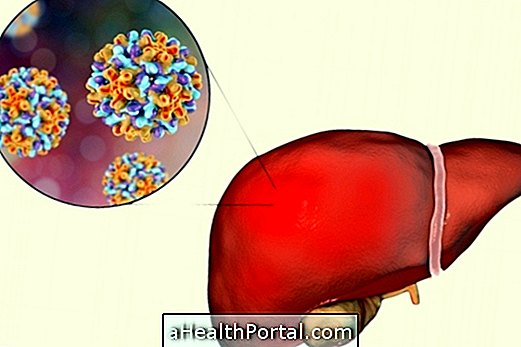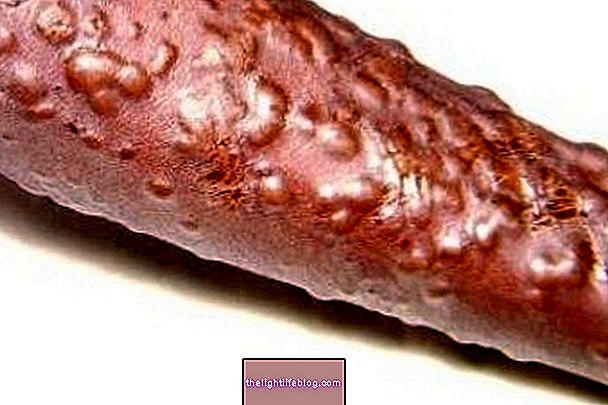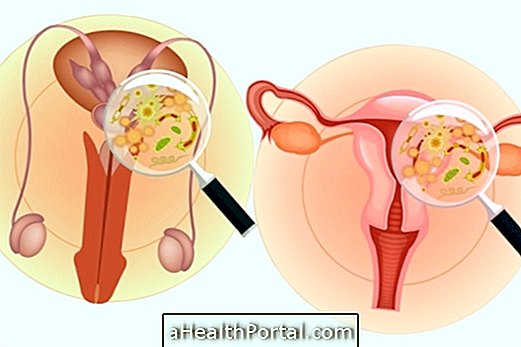Gum bleeding can be a sign of gum disease or another health problem, which should be treated as soon as possible. However, when bleeding is occasional, it may be due to brushing your teeth too hard or flossing incorrectly.
Some of the causes that may be the cause of bleeding gums are:

1. Brush your teeth very hard
Brushing your teeth too hard or flossing incorrectly can cause bleeding gums, as well as increasing the risk of developing gingival retraction.
What to do: To prevent bleeding gums in these cases, you should brush your teeth with a soft brush, avoiding using too much force. Floss should also be used with care, between the teeth so as not to injure the gums. Here's how to brush your teeth properly step by step.
2. Dental plaque
Plaque consists of an invisible film formed by bacteria that is deposited on the teeth, especially in the connection between the teeth and the gum, which can cause gingivitis, cavities and bleeding gums.
What to do: To remove plaque, brush your teeth at least twice a day, floss daily and rinse with a daily mouthwash.
3. Gingivitis
Gingivitis is an inflammation of the gums that occurs due to the accumulation of plaque on the teeth, causing symptoms such as pain, redness, swelling, gingival retraction, bad breath and bleeding gums, which can progress to periodontitis.
What to do: In case of gingivitis, it is recommended to consult a dentist, who will assess the evolution of the problem, being able to do a professional cleaning in the office and, if necessary, administer antibiotics. Know how to identify the signs and symptoms of gingivitis.
4. Periodontitis
Periodontitis is characterized by an excessive proliferation of bacteria that generates inflammation and bleeding in the gums that, over time, results in the destruction of the tissue that supports the tooth, which can result in soft teeth and, consequently, loss of teeth.
What to do: The treatment of periodontitis must be done by the dentist, in an office and under anesthesia, in which the root of the tooth is scraped in order to remove the tartar plaque and the bacteria that are destroying the bone structure that supports the tooth .
5. Caries
Dental caries is also a very common cause of gingival bleeding and consists of an infection of the tooth, caused by bacteria, which perforate the enamel, causing pain and discomfort, especially when they reach the deepest regions of the tooth. Know how to identify the signs and symptoms of tooth decay.
What to do: Caries should be treated in consultation with the dentist, through filling and restoration of the tooth.
6. Deficiency of vitamins
Deficiency in vitamin C and vitamin K can also be a cause of bleeding gums, especially when there are no other dental problems.
What to do: In these cases it is important to eat a balanced diet, rich in vitamins C and K, such as citrus fruits, broccoli, tomatoes, spinach, watercress, cabbage and olive oil, for example.
In addition to these causes, there are other factors that may be the cause of gingival bleeding, such as pregnancy, due to hormonal changes, use of dental prostheses, due to friction, blood disorders, use of anticoagulant drugs and leukemia.
Watch the following video and learn how to take care of your teeth to avoid going to the dentist:

Was this information helpful?
Yes No
Your opinion is important! Write here how we can improve our text:
Any questions? Click here to be answered.
Email in which you want to receive a reply:
Check the confirmation email we sent you.
Your name:
Reason for visit:
--- Choose your reason --- DiseaseLive betterHelp another personGain knowledge
Are you a health professional?
NoMedicalPharmaceuticalsNurseNutritionistBiomedicalPhysiotherapistBeauticianOther
Bibliography
- COLGATE. Bleeding Gums During Flossing. Available in: . Accessed on 07 Nov 2019
- HEALTHLINE. What You Need to Know About Bleeding Gums. Available in: . Accessed on 07 Nov 2019
- U.S. DEPARTMENT OF HEALTH AND HUMAN SERVICES. Periodontal (Gum) Disease. 2013. Available at:. Accessed on 07 Nov 2019
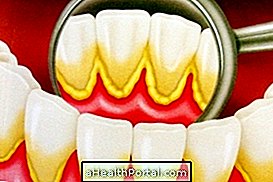

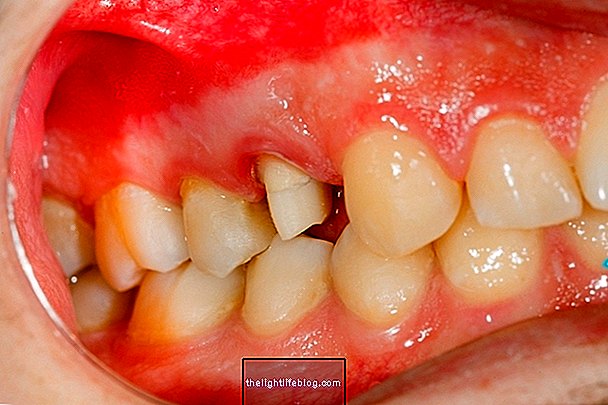


-causas-e-como-tratar.jpg)





